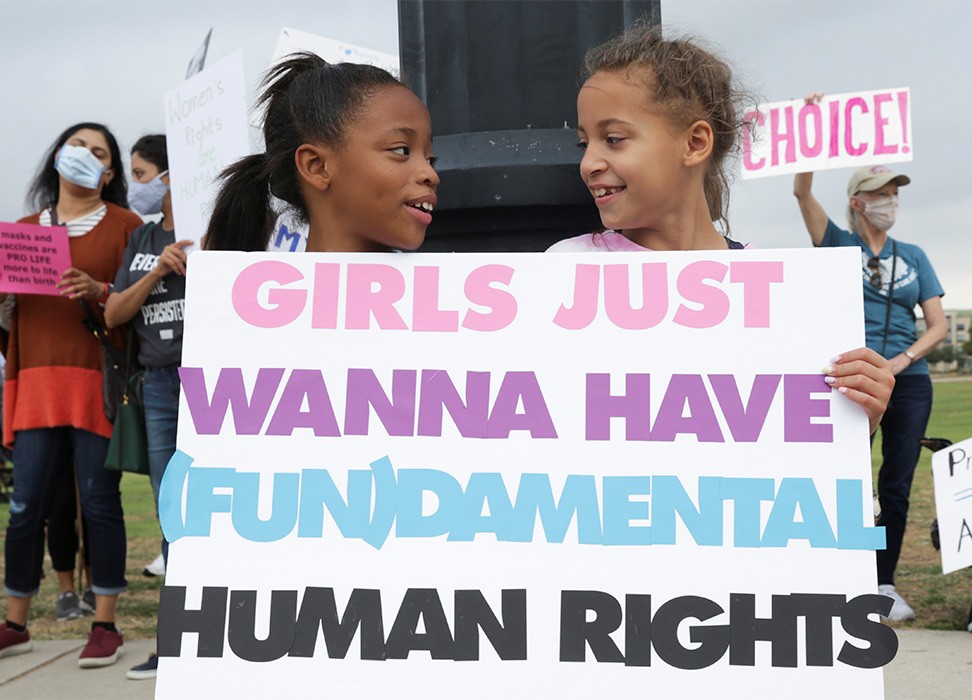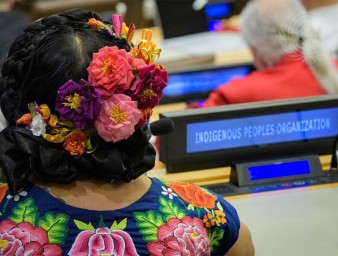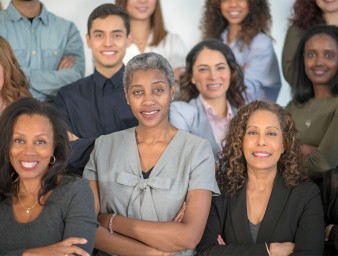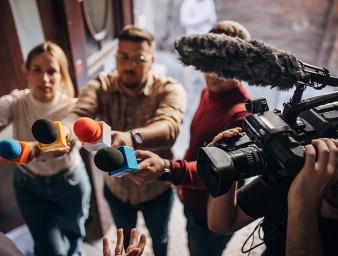Despite being at forefront of activism, women and girls still face barriers
06 September 2022

“Authorities should support the voices of young activists more; instead of silencing or minimizing them, they should be used as platforms to empower, generate a change,” said Meskerem Geset Techane, a member of the Working Group on discrimination against women and girls.
Meskerem made her comments when she presented the Working Group’s recent report during the Human Rights Council. Her words echoed those of a young woman activist who took part in one of the consultations with the Working Group.
The report on girls and young women activism highlights the profound contributions made by girls and young women to the promotion of gender equality and the advancement of human rights, as well as examines the structural barriers to the exercise of their activism.
Challenges and Setbacks
Throughout the discussion on the report, there was a general consensus that when it comes to discrimination against women and girls, so many reforms have taken place to tackle this long-standing issue, yet so much is yet to be done. Today, girls and young women continue to face barriers and challenges derived from structural discrimination based on sex, gender, and age, and rooted in discriminatory social norms and harmful stereotypes, which impede their activism.
“Conservative narratives that perpetuate discriminatory gender and age-related stereotypes suggesting that women’s and girls’ role should be limited to the private sphere, family and procreation also affect their participation in public life, silence their voices and render their contributions invisible,” the report states.
The report also states that in many cases, girls and young women may not be sufficiently aware or duly informed about their rights, which is a fundamental prerequisite for their activism.
“I was living as a young woman in oppression without noticing it. I viewed it as normal before learning more about the topic,” said one of girls during a consultation session.
Lack of safety and security also act as a major barrier to girls’ and young women’s activism, the report states. As one of the girls consulted explained that sometimes she cannot engage in issues she is so passionate about “because they are too dangerous.”
Despite the barriers that young women and girls continue to face in participating in public and political life as a result of persistent gender-based discrimination and violence within the families, communities, and society at large, they “are at the forefront of initiatives aimed at transforming societies toward social justice, gender equality and sustainability,” said Meskerem.
Collective Action
The report states that even though the obligation to implement girls’ and young women’s rights rests with States, in practice many others are involved, including parents, extended family, local communities, faith groups, and young women and girls themselves.
Home and community can also be the root cause for barriers for girls and young women to enjoy rights, such as freedom of assembly, said Clément N. Voule, Special Rapporteur on the rights to freedom of peaceful assembly and association.
In his report on rights to freedom of peaceful assembly and of association, he noted that significant barriers “are deeply rooted at home, in the family and in the community, where women and girls continue to live under patriarchal control and experience wrongful stereotyping, both of which prevent and punish participation in public life.”
“
We do not want to create conflicts; we only want to address and solve certain problems affecting us and defend our human rights
“
young woman consultation participant
As part of their recommendations, the report presented a comprehensive framework and roadmap, for how all stakeholders including States, civil society organizations, human rights institutions, donors, the UN, and private sector, should take part and play their role to create a safe and enabling environment where the activism of girls and young women can fully flourish.
“The empowerment of girls and young women through the respect, protection, and fulfilment of their fundamental human rights is an indispensable precondition for just, inclusive, peaceful and sustainable societies and the advancement of gender equality” said Meskerem
Meskerem called for a “crucial shift in nurturing a viable space where we listen to, invest in, and partner with girls and young women for the advancement of human rights and gender equality.”
Learn more about what change is needed to ensure all girls and young women have their voices heard, and what you can do to make a difference in the report: Making sure women and girls are always heard.



